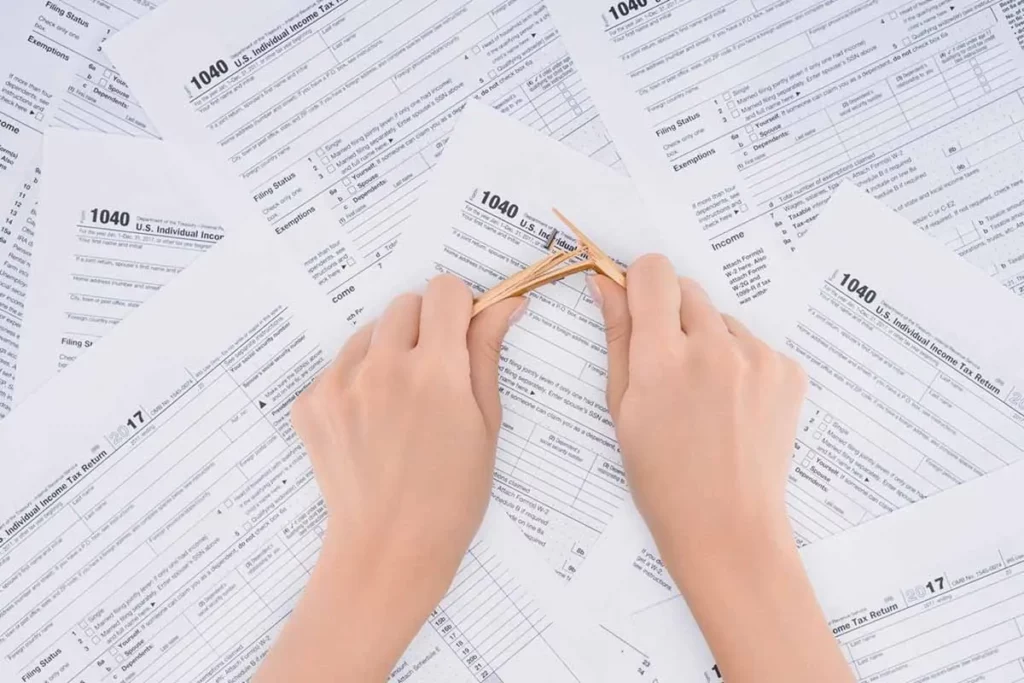
When tax season arrives, many people ask the question “how do you get selected for a tax audit?” Although it is commonly believed that a tax audit means you have made a mistake on your tax return or are suspected of criminal activity, this is not necessarily true. A tax audit is simply a review of an individual’s tax return to confirm its accuracy and compliance with tax laws. Nonetheless, a tax audit is a stressful situation for anyone.
If you are currently facing a tax audit or have questions about tax-related matters, consider consulting with a qualified Mississippi tax attorney at Damiens Law by calling (601) 957-9672.
What is a tax audit?
A tax audit is a review of an individual’s or organization’s accounts and financial information conducted by the IRS. The purpose of the audit is to confirm that reported financial information and tax amounts are accurate.
How are taxpayers selected for an audit?
One of the most common questions we hear at Damiens Law is, “how do you get selected for a tax audit?” There are two main ways that taxpayers can get selected for an audit:
1. Random selection
The IRS uses computer screening and statistical formulas to randomly select taxpayers to be audited. These formulas compare tax returns against pre-determined “norms” and randomly selects those that differ in some way.
2. Dealings with other taxpayers who are being audited
A taxpayer whose tax return includes transactions with other taxpayers who are being audited is also likely to also be audited. For example, if one partner or investor in a business is audited, the other partners or investors in the business will be audited as well.
When and how often can a taxpayer be audited?
The IRS can audit tax returns filed within the last three years. If a major issue is identified, the IRS may audit additional years. There is no limit on the number of times or the frequency at which a taxpayer can be audited.
How is a tax audit conducted?
A taxpayer who is selected for an audit is notified by mail with a letter that includes all instructions and contact information needed to complete the audit. The letter will detail the items from the tax return that need to be reviewed, such as income, expenses, or deductions.
There are three types of tax audits that can be conducted:
1. Correspondence audit
A correspondence audit is conducted by mail and is most commonly used when a tax return includes calculation errors or is missing required documents. The taxpayer is requested to mail certain documentation back to the IRS to support or prove the items reported on their tax return. If the taxpayer has too much documentation to mail, they may request an in-person audit meeting.
2. Office audit
An office audit is an in-person interview conducted at a local IRS branch during which an IRS officer reviews the taxpayer’s records. The notification letter from the IRS will detail the exact documentation that needs to be presented at the interview and will specify the date and time of the meeting. During an office audit, the IRS officer will review the documentation presented and may also ask the taxpayer questions about the items in question on their tax return.
3. Field or home audit
A field or home audit is the most serious and invasive type of audit, which involves an IRS officer attending the taxpayer’s home or place of business. During the visit, the officer reviews financial records and interviews employees about business operations, management structure, and accounting procedures. A field or home audit can last for several days.
If you are facing an IRS tax audit, it is wise to consult with an experienced tax attorney who can help you understand your rights and prepare for the audit. Contact the dedicated tax attorneys at Damiens Law to learn all of your legal and financial options if you are facing a tax audit.
What documents does a taxpayer need for a tax audit?

The documents requested for a tax audit vary depending on the items being reviewed. They may include:
- Bills and receipts
- Pay stubs
- Employment documents
- Loan agreements
- Home mortgage statements
- Retirement account statements
- Previous tax returns
- Other legal documents, such as a divorce settlement
What rights does a taxpayer have?
As outlined in IRS Publication 1, Your Rights as a Taxpayer, a taxpayer has the following rights:
- The right to be treated professionally and courteously by IRS employees
- The right for their tax information to be kept private and confidential
- The right to receive complete information relating to the reason that specific information is being requested, how it will be used, and the consequences for not providing the requested information
- The right to represent themselves or to be represented by an authorized representative
- The right to appeal an IRS decision
How is a tax audit concluded?
There are three ways the IRS can conclude a tax audit:
1. No change
When the taxpayer is able to show documentation proving that all of the items being reviewed are accurate, there will be no change to the tax return.
2. Agreed
After conducting an audit, the IRS may propose changes to the tax return, such as a change to the amount of taxes owed or the deductions included in the tax return. If the taxpayer agrees to these changes, they will be required to sign a form indicating their agreement and the audit will be complete. The taxpayer will then be instructed on how to pay any taxes that are owed, if necessary.
3. Disagreed
The taxpayer may also disagree with the changes to the tax return as determined by the IRS during the audit. This concludes the audit and the taxpayer then has the option to request a conference with an IRS manager or to file an appeal.
What factors can increase a taxpayer’s chances of being audited?
While there is no definite way of avoiding a tax audit, there are certain factors related to tax returns that are more likely to result in a taxpayer being audited. These may include:
1. High income
The higher a taxpayer’s income, the greater their chance of being audited. According to the U.S. Government Accountability Office, between 2010 and 2021, 2.53 percent of taxpayers who earned more than $5 million were audited, as compared to less than 1 percent of taxpayers who earned less than $1 million. Taxpayers who earned $10 million or more were audited at a much higher rate of approximately 8 percent.
2. Claiming a large number of deductions
Deductions reduce the amount of income on which tax is calculated. A large number of itemized deductions on a tax return is one of the most common reasons taxpayers are audited by the IRS. It is important to be certain that you are eligible for any deduction you claim and to keep complete and accurate records proving your eligibility.
3. High volume of cash transactions
Cash transactions are difficult to track and can easily go unreported. Therefore, a high volume of cash transactions is an immediate red flag for the IRS, and these taxpayers are more likely to be audited.
4. High refund amount
A high refund amount on a tax return usually indicates a large net operating loss or some other reason for a significant amount of tax to be offset. Tax returns involving a high refund amount are therefore more complicated and require careful calculations, which the IRS may want to review to confirm its accuracy.
5. Cryptocurrency transactions
Virtual currency fraud is a major issue that is being targeted by both the IRS and various other government agencies. Tax returns involving virtual currency transactions therefore attract a greater amount of scrutiny from the IRS as part of their strategy to increase compliance with related tax laws.
6. Round numbers
Round numbers used for expense categories provide an indication that the numbers included in the tax return may have been estimated. Keeping good records throughout the year is therefore important so that a taxpayer is able to accurately report expense items on their tax return.
7. Calculation errors
Calculation errors may be seen as a warning sign that the tax return has been prepared carelessly, therefore all calculations included in a tax return should be double-checked for accuracy. Hiring a tax professional is also a good way to ensure accuracy on your tax return.
How can a taxpayer prepare for a tax audit?

The best way to prepare for an audit is to maintain complete and accurate records of your income, expenses, and tax-related matters throughout the year. You should also save your tax returns and all related records for at least three years.
If you are notified of an audit, it is important to respond promptly and begin preparations right away. The notification letter will explain exactly what is being reviewed by the IRS and the documentation you are required to present. You will need to gather originals of all documents and this may involve contacting organizations to request the documentation you need.
Business owners and employees responsible for accounting and tax-related issues should use the IRS Audit Techniques Guides to assist with tax planning and preparing for an audit. These guides detail the industry-specific examination techniques used during a tax audit. They also provide details on how income is reviewed and evidence is examined during an audit.
How an experienced tax attorney can assist
Being audited is a stressful and complicated process. Having a knowledgeable and experienced tax attorney on your side can assist you in understanding your rights and better preparing for your tax audit to increase your chances of a better outcome. If you are wondering “how do you get selected for a tax audit?” contact the skilled Mississippi tax lawyer at Damiens Law by calling (601) 957-9672.
Contact us online or call (601) 957-9672 to schedule a free consultation.



